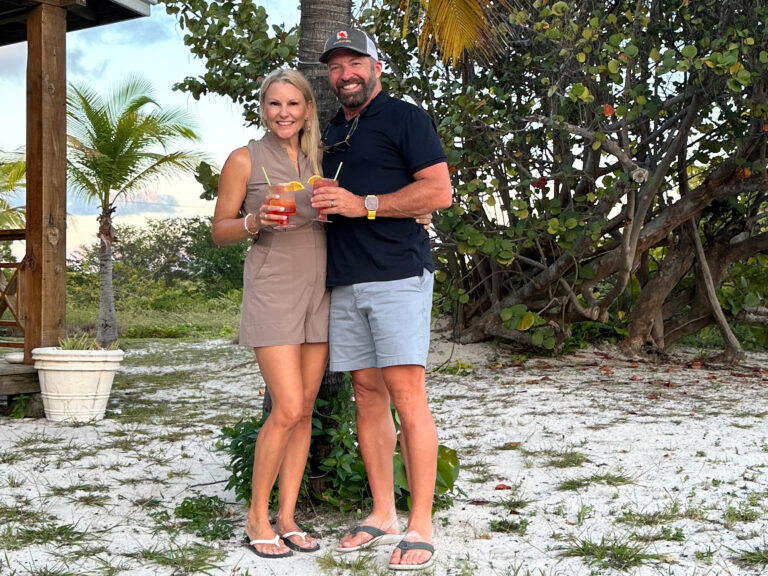
dollars and sense
For most of us, the dream of sailing off to some new harbor starts with the very pragmatic and real business of finding and buying a boat. Sure, you’ve been smitten by the come-hither sheer that beckons from the corner of the boatyard or by that brand-spanking-new fresh styrene smell and gleaming stainless steel of a new 40-footer at a boat show. But no matter how alluring the craft-and how determined you are to have it-before you drag your sea bag aboard and pick which bunk to call your own, there’ll be some nitty-gritty details to work through.
It all starts with the search. With a number of online sites at your fingertips, it’s easy to type in such parameters as price, size, and location and, with the click of your mouse, find what suits your fancy. But buyers beware! There’s no telling when those photos of the gleaming saloon, comfy bunks, and ship-shape deck were taken. Was it when the boat was listed, or were they left over from when the current owner, Bob the Slob, bought the boat from Mr. Neatnick?
I well recall finding a drop-dead gorgeous-looking Bristol 40 online. The boat was located in a yard just outside of Ellsworth, Maine, about a six-hour drive from Boston. A mild winter weekend was forecast, so I called the listing broker, who assured me that the boat was ready to sail away. We loaded up the car and headed east. And what did we find when we arrived? Forty feet of not-very-shipshape sailboat: Hatches had been left open, ice covered the sole, and condensation rained from the cabin top, thanks to the warm spell. The open-air storage plan hadn’t benefited the cushions much, nor the bunkloads of partially frozen sails and personal belongings. My wife was not amused.
So how do you avoid driving hundreds of miles to kiss another frog? One solution is to find a broker who’ll take the time to sort through your particular wish list, then help you with your search. Often, a broker may be familiar with boats that are on the market nearby, or at least can get a candid response from his counterpart who has the listing. In this way, buying a boat isn’t all that unlike purchasing real estate, in which both the buyer and seller have brokers, and they split the commission (typically 10 percent) that’s paid by the seller.
“The best way is to allow your broker to make the calls. Most of us know each other. It’s a small business, it’s as big as a postage stamp,” says Rick Dieterich of Springline Yacht Sales, a broker and Hunter dealer in Mystic, Connecticut. He says that a customer calling a listing broker could get one story, while a broker is likely to get a clearer picture of the boat. “You get a more candid story, broker to broker.”
John Proctor, of Lawson Yachts in Hingham, Massachusetts, agrees, adding that once the right boat is found, having a broker help prepare and present your offer can be beneficial, as well.
“Let’s say you’re the buyer and I’m your broker. The other broker should be the most valuable asset in determining what you should offer,” Proctor says. Though the seller’s broker may be limited in what he or she can say because of confidentiality issues, your broker can inquire what an owner might think of an offer, or the buyer’s agent can suggest an alternative amount if another offer has been made and refused. In the end, the buyer can offer any amount, and it has to be presented to the seller, but if it’s a boat in which you’re seriously interested, it will be to your benefit not to make an offer that the seller might discount out of hand.
“I’m going to formulate an offer that the owner will take as a serious venture,” Proctor says.
He advises both sellers and buyers to do their homework before going to look at a boat or listing one.
“I think that’s the mistake most people make, putting the boat on above what the market will bear,” says Proctor. “People are either responding to the listing or not responding. If not, typically it’s a price issue. People can cut a lot of time off the process by doing some homework and assuming that people aren’t going to pay a premium for the boat.”
Buyers can help themselves, too, by being realistic about how they plan to use the boat. They need to assess what they need as opposed to what they want, what they can afford, and where they want to be on the quality spectrum. When it comes to a used boat, “if they know the price and quality they want, that defines age, typically,” Proctor says.
Or as Dieterich puts it, the buyer’s broker can help identify what’s important, then find the boats that come closest to meeting those needs.
“I enjoy being the buyer’s broker. I really like understanding the wants and needs,” he says. “There’s nothing like finding the boat that someone’s going to get excited about and seeing them light up like a Christmas tree.”
Negotiating the Deal
“There’s a seller who wants to be satisfied and buyer who wants to be satisfied. If it’s going to be a good deal, both sides have to come away feeling that they’ve been treated fairly,” Proctor says.
In a market like the current one, buyers feel as though they’re in control of the deal, and sellers, who may have bought their boat when values were high, are overly optimistic about what the current price should be.
Proctor advises sellers to see what similar boats are listed for and try not to be at the top end. Then see what the interest is. If the phone isn’t ringing, try lowering the price until inquiries start to come in.
But on the buyer’s side, he cautions that with every price reduction, the seller loses whatever negotiating room there is in the deal. If you really want the boat and it’s been on the market for a while and the price has already come down, a lowball offer may be out of the question. Or if it’s just been listed, the seller may not want to drastically lower the price and will wait instead for other offers.
“Knowing the length of time on the market, offers that have been turned down, why it’s on the market, these are all important questions, I think, that should factor into what a buyer offers-an intelligent offer, not a bone-headed offer,” Proctor says.
With new boats, the process is very much the same, though typically there’s only one broker, the dealer, involved, says Dieterich.
As is the case with a used boat, a new-boat dealer can be a motivated seller, since having the boat sitting on the lot costs money to finance, insure, maintain, and advertise. Oftentimes, then, a dealer, especially if the boat’s in inventory, will be willing to talk price-to a point.
Asked about buyers who make an offer of dimes on the dollar, Dieterich was quick to respond, “On the new-boat side, I won’t deal with them. It doesn’t make business sense.”
Once an offer’s been made, countered, and accepted, whether on a new or a used boat, a survey is recommended, and will likely be required if you need financing and insurance. Depending on the results of the inspection, there may be post-offer negotiations. But, cautions Proctor, “I encourage people to think of the survey as something that determines the boat is what you think it is, not as a tool to grind the price down.” And if issues do arise, his advice is to not have the seller fix the problem; instead, he says to have the work done by a yard or for there to be a price reduction. Then it’s up to the buyer to determine the quality of repair that’s acceptable.
And on a final note, Proctor advises buyers to know in advance what they can afford and to inquire about other restrictions. (See “Boat Loan Approved (Maybe),” page 78.) He recalls one client who made an offer on a 41-foot boat, only to find out that insurers, because of his sailing experience, would only insure him on a boat up to 39 feet.
Trade or Sell?
If you already own a boat but you have your eye on your next one, are you better off selling or looking for a trade-in? That depends. If the boat you want is being sold privately, you’ll probably have no choice but to be a two-boat owner for some period of time or to price your current boat aggressively enough to make it quickly go away.
But if you’re buying new or a used boat from a dealer’s inventory, a trade-in may well be an option.
If you’re selling your boat through a broker, you can expect to pay a 10-percent commission. Over and above that, you’ll need to maintain the boat, store it, and insure it, says Dieterich, noting that the average time right now for a sale is about 270 days. When you factor those costs in, plus whatever tax incentives might exist, the dollars can add up.
Conversely, if he were to take the boat in trade, Dieterich says that the average offer might be 70 percent of the boat’s retail value. If you run the numbers on a $100,000 boat, the seller would lose about $3,000 by going the trade-in route. But
“You can give it to me. I’ll pay to store it, I’ll maintain it, and I own it. It’s off your shoulders, and it happens instantly,” says Dieterich.
In the current market, dealers may not be offering quite such generous terms, so before you agree to trade, take some time to sort through the financial details.
When it comes time to buy, sell, or trade your boat, the trick is to balance the emotional side of the transaction against the cold, hard numbers and make sure that they add up to a deal that works for you.
Mark Pillsbury is the editor of CW.








